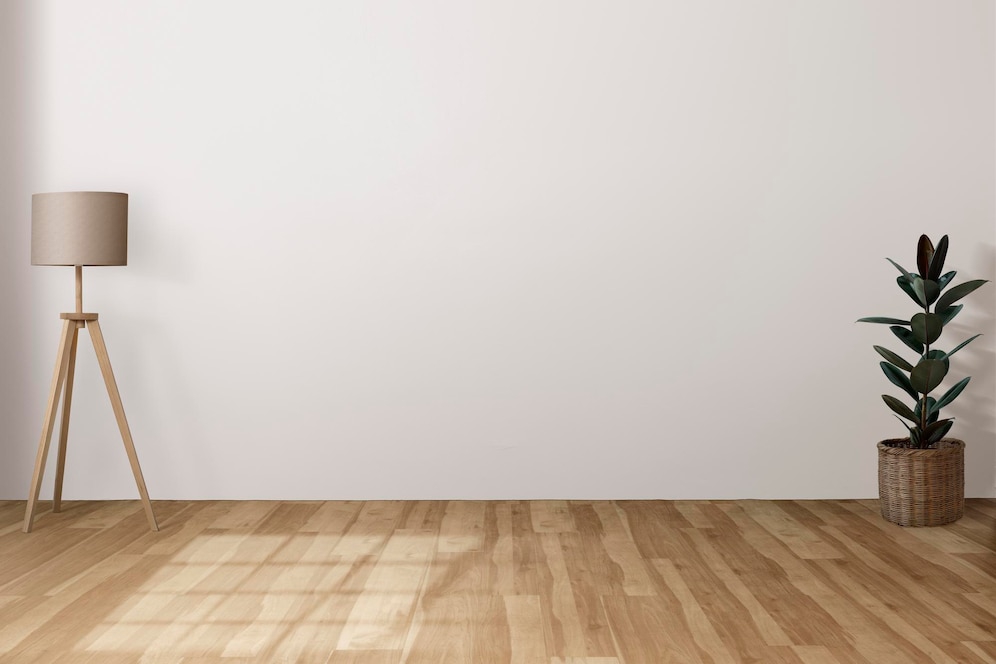Wooden flooring adds charm, warmth, and elegance to any home or office. It’s timeless, versatile, and makes any space feel cozy and premium.
But in the UAE, where humidity levels rise especially in summer wooden floors can face serious challenges.
Humidity can cause wood to swell, warp, crack, or even shift over time. That’s why protecting wooden floors in Dubai's climate isn’t just a good idea it’s a must.
Here’s your simple, easy-to-follow guide on how to keep your wooden floors safe and beautiful in humid weather.
Why Humidity is a Problem for Wood
Wood is a natural material that reacts to its environment. It absorbs moisture when the air is humid and releases it when the air is dry.
This constant cycle of expansion and contraction causes:
-
Warping or buckling
-
Gaps between floorboards
-
Creaking sounds
-
Uneven surfaces
These problems don’t just ruin the look of your floor—they can also weaken the structure over time.
Signs Your Floor Is Being Damaged by Humidity
Watch out for:
-
Soft, spongy spots
-
Raised or uneven edges
-
Cracks in between planks
-
Moldy or musty smells
If you notice these, it’s time to take action.
7 Easy Ways to Protect Wooden Floors in a Humid Climate
1. Use a Dehumidifier at Home
One of the best ways to fight moisture is with a dehumidifier. It helps control the amount of water in the air, especially during humid months like July and August.
Keep indoor humidity between 35% to 55%—this is the sweet spot for wooden flooring.
Dehumidifiers are easy to use and can be placed in living rooms, bedrooms, and even hallways.
2. Ventilation is Key
Fresh air makes a big difference.
Open windows early in the morning or late in the evening when it’s less humid outside. Use exhaust fans in bathrooms and kitchens to push out steam and reduce indoor humidity.
Try cross-ventilation open windows on opposite sides of the house to let air flow through.
Good airflow = less trapped moisture.
3. Seal Your Floors Properly
A wood floor sealant acts like a shield between your floor and moisture in the air.
If your wooden floors are new, ask your installer to apply a humidity-resistant sealant. If your floors are older, consider resealing them every 1–2 years.
Sealants also make cleaning easier and add a beautiful finish to the wood.
4. Clean Gently and Correctly
Over-mopping is one of the most common mistakes with wooden floors.
Use a soft mop that is slightly damp—not soaking wet. Always use wood-safe cleaning products. Harsh chemicals can strip the wood’s protective layer and make it vulnerable to moisture.
And never use steam mops. They force heat and moisture into the wood, which leads to swelling and damage.
5. Lay Down Rugs or Mats
Place non-slip rugs in high-traffic areas like living rooms, near entrances, and under sinks.
These rugs protect your floors from wear and tear, trap dust, and absorb small amounts of moisture from wet shoes or spills.
Make sure rugs are breathable rubber-backed rugs can trap moisture and cause more harm.
6. Fix Leaks Fast
Water leaks are the worst enemy of wooden floors. Check regularly for leaks from:
-
Air conditioners
-
Kitchen pipes
-
Bathroom fittings
-
Windows after rain
Even small leaks can slowly cause big damage. Fix them right away and dry any wet spots as soon as possible.
7. Consider Engineered Wood Flooring
If you’re just getting started with flooring, think about engineered wood flooring. It looks just like solid wood but performs better in humid climates.
Why? Engineered wood has multiple layers. This layered design makes it more stable and less likely to warp or crack.
It’s a great option for the UAE and other hot, humid regions.
FAQs: Wooden Floors in Humid Climates
Q1: Is it okay to install wooden floors in Dubai?
Yes! But you must take precautions like sealing, using dehumidifiers, and proper cleaning.
Q2: How often should I reseal my wooden floors?
Every 1–2 years, depending on foot traffic and moisture levels.
Q3: Can I use a vacuum on wooden floors?
Yes, but use a vacuum with a soft brush head to avoid scratching the surface.
Q4: Are solid wood floors better than engineered wood?
Solid wood is beautiful but not ideal for humid climates. Engineered wood is more stable and better suited for the UAE.
Q5: What’s the biggest cause of floor damage in the UAE?
High indoor humidity combined with poor ventilation and water leaks.
Conclusion
Wooden floors are a beautiful investment—but they need care, especially in the UAE’s humid weather.
With a few simple steps like using a dehumidifier, sealing your floors, cleaning gently, and improving airflow, you can enjoy stunning, long-lasting floors for years.
And if you're still deciding what type of wooden flooring to install, it's always smart to work with a trusted flooring company in Dubai.
At Chic Floors, we offer expert advice, premium materials, and installation tailored to the UAE’s climate. Whether you're upgrading your home or designing a new space, we’re here to help you protect your floors from day one.




